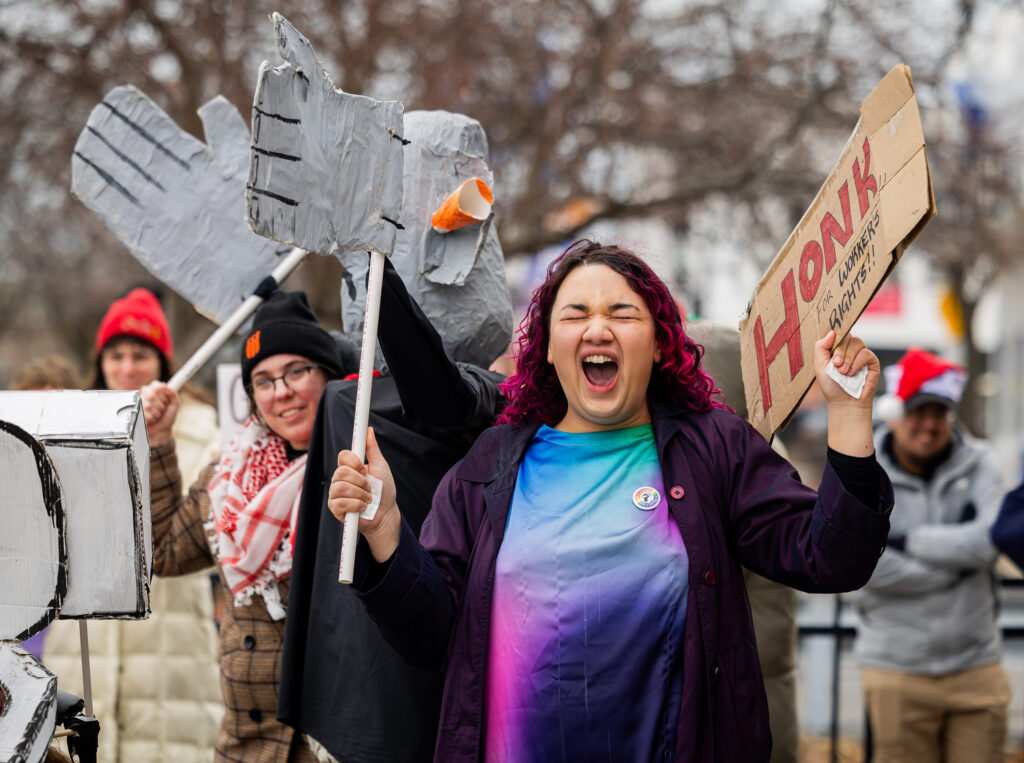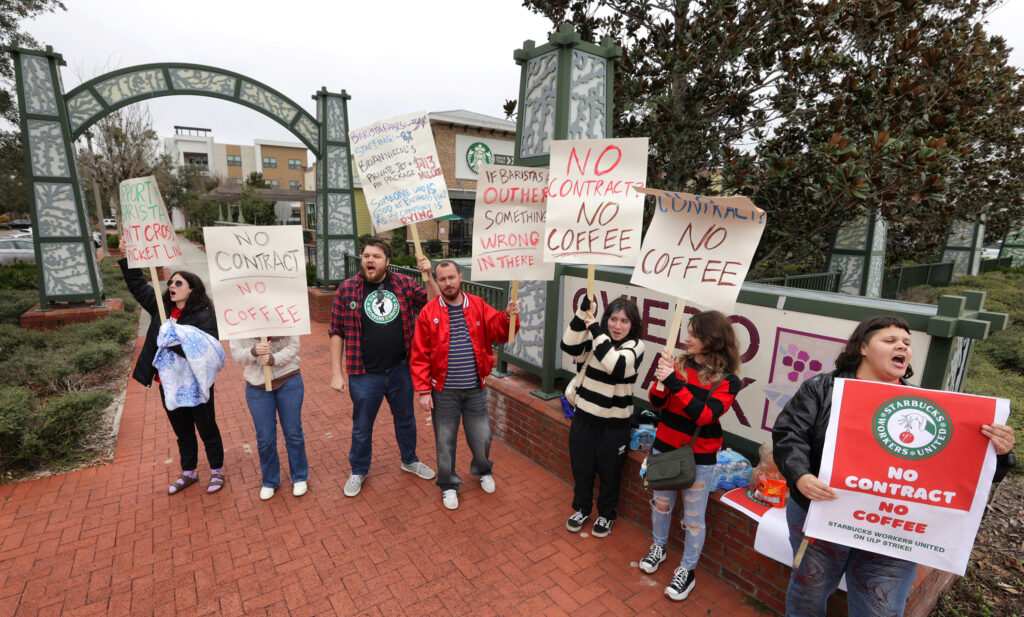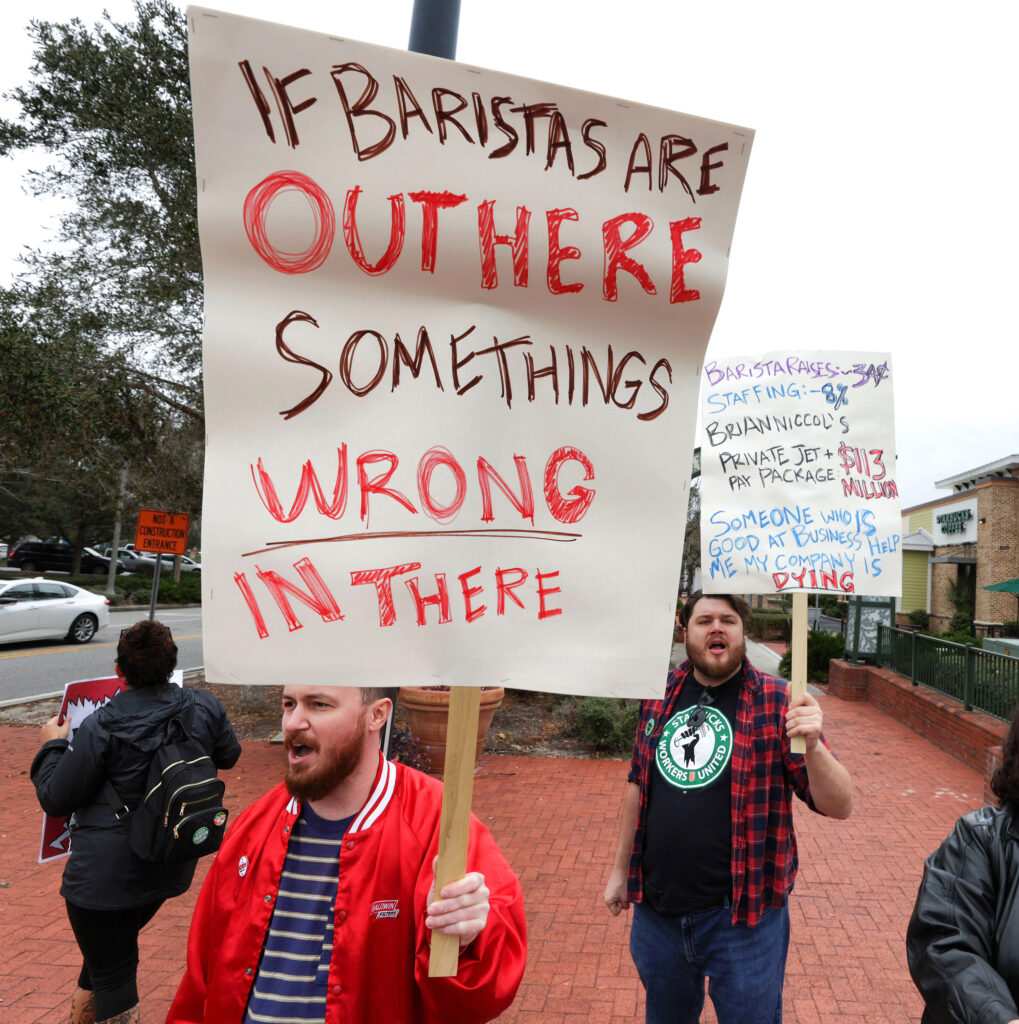A rolling strike of Starbucks baristas has grown since kicking off Friday to include about 300 of the coffee giant’s shops across the U.S., according to the union organizing the work stoppage.
The strike, set to end after Christmas Eve, seeks to pressure Starbucks during the busy holiday season to offer a better wage proposal over what would be a first contract for its workers. Employees also aim to push Starbucks to resolve outstanding unfair labor practice charges filed by workers in recent years.

Starbucks Workers United, the union that represents about 10,000 workers at a few hundred of the ubiquitous chain’s nearly 16,500 U.S. locations, said that baristas in Boston, Philadelphia, Portland and Tucson walked off the job Monday as part of a plan to grow the number of striking employees over the course of the five-day action. They joined baristas in Los Angeles, Chicago and Seattle who launched the strike and were followed by others in Denver, New York, St. Louis and other cities.
“My co-workers and I made the difficult decision to launch unfair labor practice strikes in hundreds of stores across the country because we know that investing in baristas is the only way to turn things around. These strikes are an initial show of strength, and we’re just getting started,” said Lauren Hollingsworth a barista from Ashland, Oregon, in a news release from the union.
The union said the strike is the largest in Starbucks history. The final days before Christmas are traditionally some of Starbucks’ busiest customer traffic times.
Starbucks downplayed the significance of the strike, saying it would make little impact on its overall operations. “The vast majority of our stores (97-99%) will continue to operate and serve customers, and we expect a very limited impact to our overall operations,” said Sara Kelly, executive vice president and chief partner officer, in recently published blog post on Starbucks’ website about the strike.

On Monday, more than 60 store locations were forced to close amid the ongoing strike, the union said. And on Tuesday, Starbucks said 170 of its more than 10,000 company-operated stores in the United States did not open as planned.
The company has criticized the union, saying it “prematurely” ended bargaining sessions last week.
“It is disappointing they didn’t return to the table given the progress we’ve made to date,” the company said in a statement.
Initially, five stores in Southern California were involved in the strike including in Van Nuys, Santa Clarita, Highland Park and Anaheim, said Evelyn Zepeda, organizing director in California for Workers United. That number has expanded to include locations in downtown and elsewhere.
The work stoppages mark a major turning point for Starbucks Workers United, which formed in 2021 and steadily has made headway in its campaign to persuade baristas at Starbucks around the U.S. to join. Hopes that the two sides would be able to hammer out a deal had been high since February, when the company pledged publicly to work with the union and take a more neutral approach toward the drive to organize workers.

The conciliatory stance was an about-face for a company that previously had intensely resisted the campaign to organize its workers. Federal regulators found Starbucks repeatedly violated labor laws by disciplining and firing workers involved in unionizing activity, shutting down stores and stalling contract negotiations.
The National Labor Relations Board has conducted a total of 647 union elections at Starbucks stores, with 109 of them falling short, several others with challenged ballots and 528 currently with certified bargaining units, according to NLRB spokesperson Kayla Blado. In California, 66 stores have held union elections and 44 of them have had their bargaining units recognized by the labor board.
Blado said workers have filed more than 700 unfair labor charges against Starbucks, its subsidiary Siren Retail Corp., or its law firm Littler Mendelson, alleging a range of violations. The union has not filed any new charges against Starbucks since late February.
___
© 2024 Los Angeles Times
Distributed by Tribune Content Agency, LLC.



